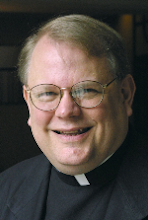
Before the first star twinkled,
Before the first child giggled and smiled,
Before the ice first froze,
or the first fire crackled with warming light,
Before all that,
HE LOVED US:
He loved us so much he gave us a garden. With every kind of natural beauty within it! And we, with Adam and Eve, sold it for an apple!
When’s the last time you stopped to see the exquisite beauty of the softly falling snow on the evergreens of the Adirondacks? When’s the last time you were thrilled by the sound of the wind through the trees, sounding like God’s voice, still whispering to his world, “I am here…all around you”? How often we ignore his beauty: the beaut of the paradise we are given, refuse the gift and sell the apple.
He loved us so much he gave us people to love. From the side of Adam he carved out another human being, so that man and woman could love each other and children could be born in a sanctuary of love. He created us to love in purity and truth, and we responded with betrayal, abuse, and abortion, and more concern for money and for passing pleasures than for life-long life.
He loved us so much he built us a Peaceable Kingdom. And we abandoned it for selfish violence and hate.
Not just in wars, for those are usually out there…but by the hatred born of callous disregard that does violence to others reputations through gossip or neglect, and the awful violence we do to each other when we refuse to love others and to care and even to listen.
Now if you were God,
and someone had rejected all your gifts,
you’d probably have done with them.
Tell them to go away!
But as we sneered at him,
as we sinned our way to selfishness,
he sent us an even better gift:
his only Son….born for us as a little child,
to lead us back…
Back to the Garden
Where everything is put at the service of God,
Where truth is not invented, but received,
Where we are not the masters, but the caretakers of God’s gifts.
Back to the meaning of love
A love that gives unto death, without thought of taking,
A love that rejoices in suffering for the beloved,
A love that is faithful, and fruitful, and ready to sacrifice,
Back to the Peacable Kingdom
Where the other cheek is turned,
Where when they ask you for your coat, and you give your shirt too,
Where shepherd are king and the poor are blessed.
A garden of joy, people to love, and a world at peace…
These are the gifts we are offered on this Christmas night…paradise restored!
And on the day after Christmas, when the gift wrap is in the dumpster,
what will we do with God’s gift?
Will we use it for his glory?
Will we take joy in all the wonders God has placed around us?
Will we be good stewards of his good creation?
And throughout the coming year, what will we do with God’s gift?
Will we vote for God’s truth or for our convenience?
Will we seek the ways of peace or of power?
Will be build up God’s kingdom or our own?
And in the car on the way back home in the car tonight, what will I do with God’s gift?
Will I forgive that stupid thing that so ticked me off on the way up here?
Will I embrace my little needs or the heart of the one sitting next to me?
Will I be the instrument of peace that begins not with worldwide negotiations?
but with me?
For you see, this story, which began with Adam and Eve and reached its climax in a little manger ‘neath the Bethlehem star, continues in Worcester tonight. It is your story! And tonight, the rest of the story just begins!
Monsignor James P. Moroney
Rector





